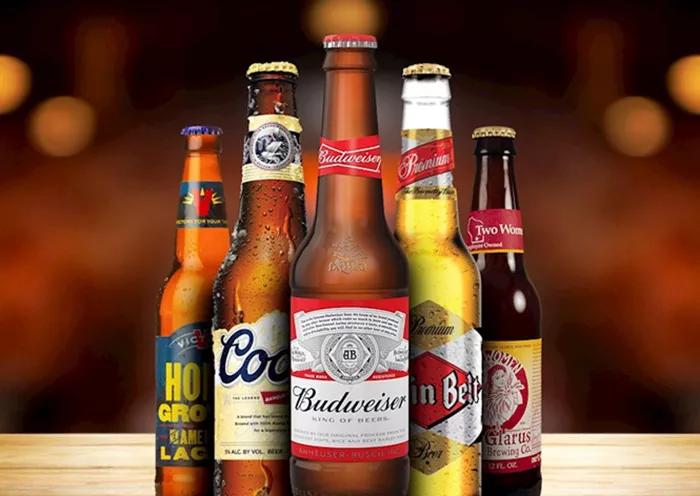The traditional image of beer drinking has long been associated with a group of rowdy men in a bar, likely watching a sports match on television. Yet a simple shift—such as serving beer in a wine glass instead of a tankard—can transform the experience, appealing to women and redefining beer as a sophisticated drink in social settings.
In South Africa, efforts to break these stereotypes are gaining momentum. The Craft Beer Association of South Africa (CBASA), which operates under the Beer Association of South Africa (BASA), is actively challenging gender norms in the beer-drinking culture. BASA’s goals extend beyond this, aiming to promote responsible alcohol consumption while supporting industry growth that benefits all within a robust regulatory framework.
Beer as a Cultural and Economic Force
Charlene Louw, CEO of BASA, emphasizes the deep cultural roots of beer in South Africa. “Beer is more than just a social activity; it plays a crucial role in our economy, creating jobs and developing skills. We want to see women fully participating in the opportunities the beer industry can offer,” she says.
Two women who are blazing a trail in this traditionally male-dominated field are Wendy Pienaar, co-founder of Just Brewing Co. in Benoni, Gauteng, and Megan Gemmell, founder of Clockwork Brewhouse in Pietermaritzburg, KwaZulu-Natal. Despite their success, women like Pienaar and Gemmell represent fewer than 5% of local brewery owners or head brewers.
Overcoming Challenges and Changing Perceptions
For both Pienaar and Gemmell, the challenges they faced came not from their male peers in the industry, but from public misconceptions about women’s roles in brewing. “In the early days, I was often mistaken for a server while my partner, Deon, was asked the technical brewing questions,” says Gemmell. “Thankfully, that’s changing over time.”
Still, stereotypes persist. “We often receive comments that belittle our beer knowledge, or we hear sexist remarks,” Gemmell adds. “At events, women are typically offered alcopops or wine, not beer.”
Another hurdle Gemmell faced was the physical demands of running a craft brewery. “Growing up, we weren’t taught the same technical skills as boys, like fixing pumps or handling plumbing. Learning those skills has been both challenging and rewarding.”
Encouraging More Women to Enter the Industry
Pienaar believes many women who say they don’t like beer simply haven’t found the right one yet. “There’s a beer for every palate, even ones that taste like pina coladas. The key is experimenting. Women just need to be given the chance to explore beer in a comfortable environment.”
She acknowledges that major breweries like SAB and Heineken are starting to depict both men and women as beer drinkers in their marketing, but notes that there’s still room for improvement.
A Welcoming Industry for All
Despite the stereotypes, the craft beer industry in South Africa is notably inclusive. According to Gemmell, there’s a strong sense of community among brewers. “If one craft brewery runs out of ingredients, they can often source them from another,” she explains.
Interestingly, Gemmell notes that a passion for beer isn’t a requirement to work in the industry. “In fact, loving beer too much might be a disadvantage,” she jokes. The industry welcomes individuals from all backgrounds, regardless of gender or race.
Although there is no formal beer brewing qualification offered locally, aspiring brewers can study remotely through the Institute of Brewing and Distilling in London, advancing to Master Brewer level.
Research shows that women are more likely to be “supertasters” than men, meaning they have heightened sensitivity to certain tastes. “This can make them better beer judges,” Pienaar notes, referring to studies by Dr. Linda Bartoshuk of Yale University. But Gemmell is quick to add that anyone can train their palate by trying different beers and discussing flavors with friends.
What’s most important for success in the industry, according to Gemmell, is a strong work ethic and an ability to handle crises. She notes that many breweries prefer to hire women because of their attention to detail.
Pushing for Greater Inclusivity
CBASA is taking concrete steps to get more women involved in both beer tasting and brewing as a career. “We must ensure that beer events are inclusive and marketed to everyone, not just men,” says Pienaar. “Expanding the presence of women as both brewers and consumers is essential for the future of the industry.”
Gemmell echoes this sentiment. “The craft beer community is a supportive environment where both men and women work together. We all share the same goal—making great craft beer.”
As more women break into the industry, South Africa’s craft beer scene is steadily becoming more inclusive, offering opportunities for everyone to enjoy and contribute to its growth.
You Might Be Interested In:


